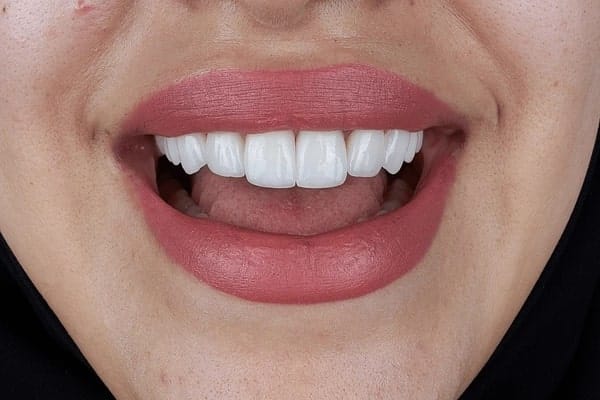A chipped tooth is a common dental issue that can range from a minor inconvenience to a severe dental emergency. Whether caused by an accident, biting into something hard, or underlying dental issues, it is essential to address a chipped tooth promptly to prevent further complications. This article explores emergency measures, professional treatments, and long-term restorative solutions to maintain optimal oral health.
What are the Immediate Steps to Take After Chipping a Tooth?
Acting quickly can significantly impact the outcome when dealing with a chipped tooth. Follow these steps to manage the situation effectively before visiting a dentist:
- Rinse Your Mouth – Use warm water to clean the area and remove any debris.
- Apply a Cold Compress – Placing an ice pack on the outside of the affected area can help reduce swelling and discomfort.
- Take Over-the-Counter Pain Relief – If there is pain, ibuprofen or paracetamol can help manage it.
- Protect the Tooth – Cover any sharp edges with sugar-free gum or dental wax to prevent injury to the tongue or cheeks.
- Avoid Certain Foods – Stay away from hard, sticky, or acidic foods that could worsen the damage.
- Save Any Broken Pieces – If possible, store the tooth fragment in milk or saliva to preserve it for potential reattachment.
- Seek Immediate Dental Care – Visit a dentist as soon as possible for professional assessment and treatment.
How Do You Determine the Severity of a Chipped Tooth?
The extent of damage dictates the appropriate treatment. Below is a table outlining the severity levels and recommended solutions:
| Severity Level | Symptoms | Recommended Treatment |
| Minor Chip | Rough edge, no pain | Dental bonding, enamel smoothing |
| Moderate Fracture | Sensitivity, mild pain | Veneers, crowns, bonding |
| Severe Break | Intense pain, bleeding, nerve exposure | Root canal, crown, or extraction |
If a tooth fracture exposes the inner pulp, immediate intervention is crucial to prevent infection.
What Are the Professional Treatment Options for a Chipped Tooth?
Depending on the severity of the damage, dentists offer several treatment options:
1. Dental Bonding
- Ideal for minor chips
- A tooth-coloured composite resin is applied and hardened with a special light
- Provides a natural-looking and quick fix
2. Porcelain Veneers
- Suitable for moderate chips or aesthetic concerns
- Thin shells of porcelain bonded to the front of the teeth
- Long-lasting and stain-resistant solution
3. Dental Crowns
- Recommended for significant damage or weakened teeth
- A custom-made cap covers the entire tooth for protection and strength
4. Root Canal Therapy
- Necessary when the inner pulp is exposed or infected
- Removes damaged tissue and seals the tooth to prevent further issues
5. Tooth Extraction & Implant Placement
- Last resort for severely damaged teeth that cannot be saved
- The missing tooth is replaced with a dental implant for durability and function
What Are the Temporary vs. Long-Term Fixes for a Chipped Tooth?
| Solution Type | Methods | Effectiveness | Duration |
| Temporary Fix | Dental wax, sugar-free gum | Low | Hours – Days |
| Short-Term Treatment | Dental bonding, composite resin | Medium | 3-5 years |
| Long-Term Fix | Crowns, veneers, root canal | High | 10-15+ years |
While temporary fixes provide relief, professional dental treatment is essential for long-term oral health and aesthetics.
How Does a Chipped Tooth Affect Oral Health?
Ignoring a chipped tooth can lead to:
- Increased Sensitivity – Exposed dentin can cause discomfort with hot or cold foods.
- Risk of Decay – Cracks and chips create openings for bacteria, leading to cavities.
- Weakened Tooth Structure – A minor chip can escalate into a severe break if left untreated.
- Aesthetic Concerns – Even minor chips can impact confidence and appearance.
Addressing a chipped tooth promptly prevents these complications.
Where Can You Get Expert Care for a Chipped Tooth?
If you have experienced a chipped tooth, seeking professional treatment from a trusted dental clinic is crucial. Palm Beach Dental offers expert care tailored to individual needs. Their team provides immediate relief and long-term restorative solutions using state-of-the-art techniques and materials. Whether it’s a minor chip or a severe break, Palm Beach Dental ensures optimal care for restoring functionality and aesthetics. Book an appointment today for a comprehensive evaluation and a personalised treatment plan.
Frequently Asked Questions (FAQs)
1. Can a chipped tooth heal on its own?
No, a chipped tooth will not heal naturally. Professional treatment is required to restore its structure and prevent further damage.
2. How long can I wait before seeing a dentist for a chipped tooth?
It is advisable to see a Dentist as soon as possible. Delaying treatment can lead to infection, increased sensitivity, and further breakage.
3. What foods should I avoid with a chipped tooth?
Avoid hard, crunchy, sticky, and acidic foods as they can worsen the damage and increase sensitivity.
4. Is dental bonding a permanent fix for a chipped tooth?
Dental bonding is a durable but not permanent solution. It typically lasts 3-5 years, after which it may require replacement or maintenance.
5. Can I prevent my teeth from chipping?
Yes, maintaining good oral hygiene, avoiding chewing hard objects, wearing a mouthguard during sports, and regular dental check-ups can help prevent chipping.
6. Does a chipped tooth always require a root canal?
No, a root canal is only needed if the pulp is exposed or infected. Minor chips usually require bonding or veneers.


